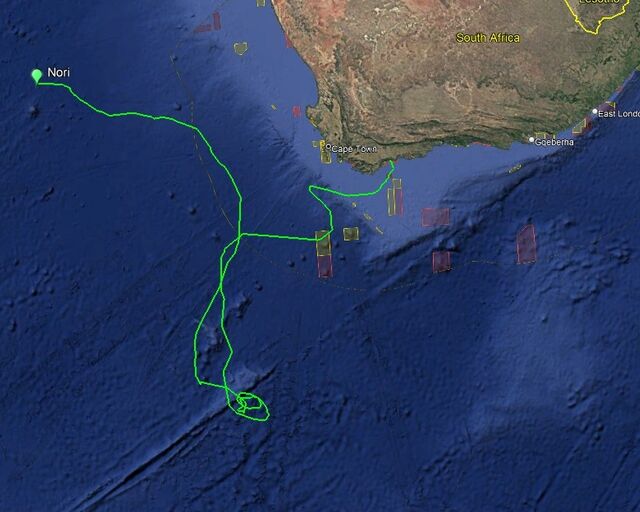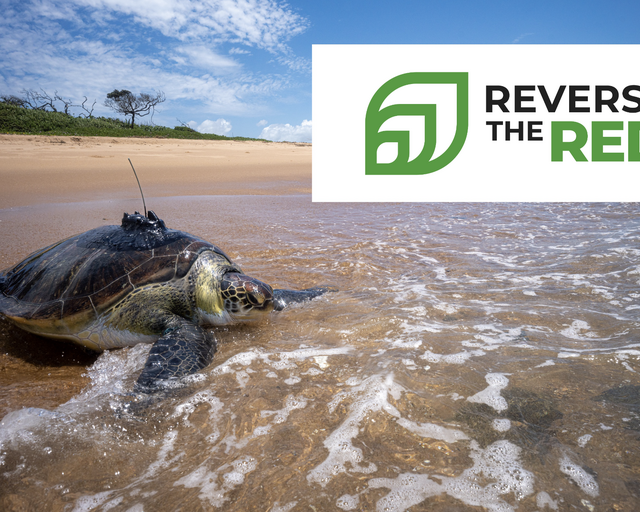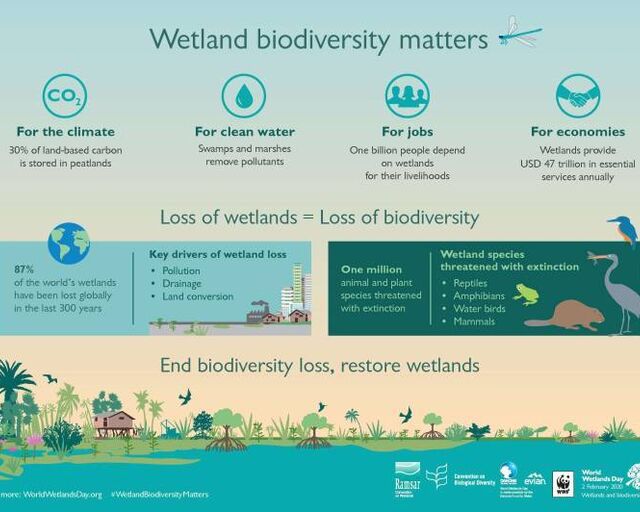Best facts about the iconic African penguin
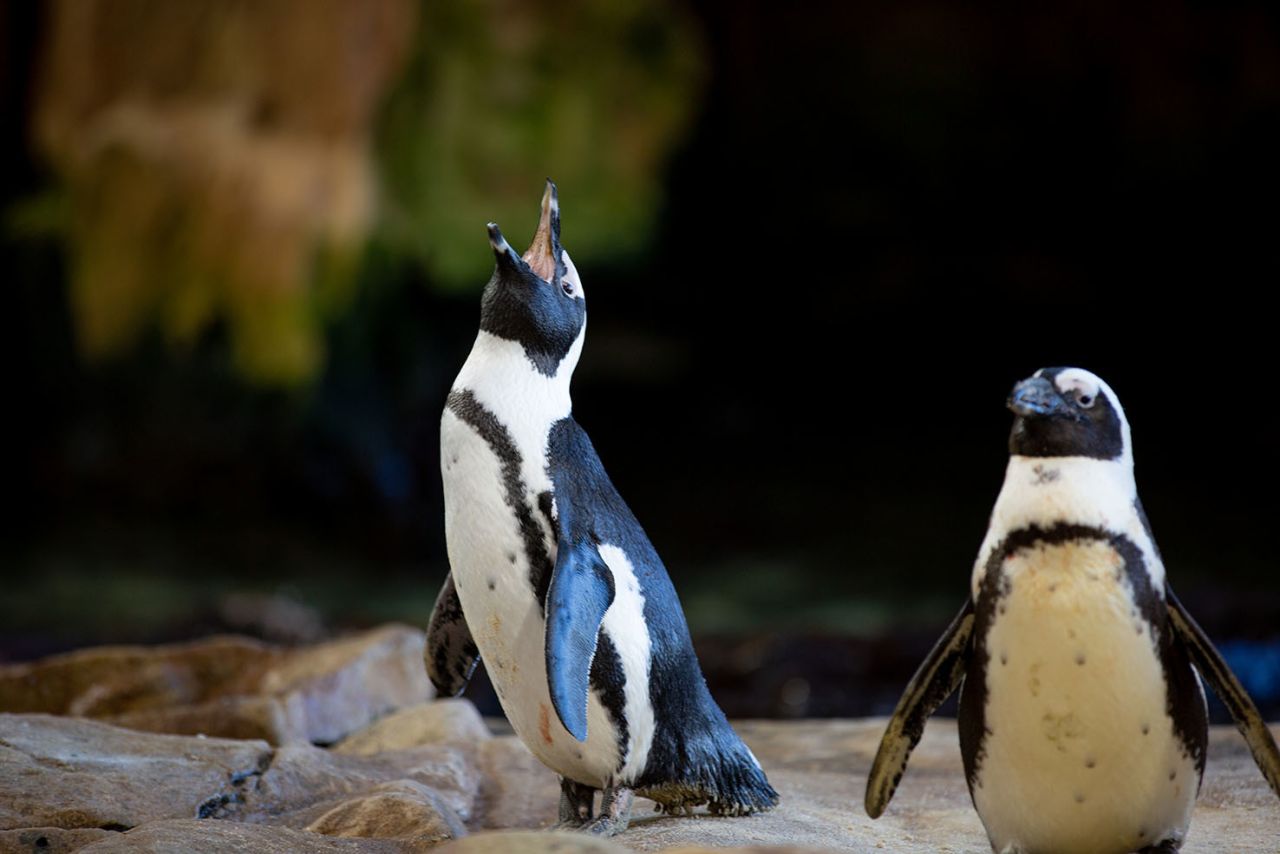
African penguins are one of our favourite seabirds - they are noisy, cantankerous, curious, beautiful, and mischievous, but they are also at significant risk of extinction. In the lead-up to International African Penguin Awareness Day (and our exciting worldwide waddles), here are 50 facts about these iconic seabirds!
- African penguins mate for life. 80-90% of all African penguin couples will stay together for their entire lives!
- They are an indicator species - the decline in African penguin numbers is directly related to the overfishing of their prey species (like anchovies and sardines) and to climate change.
- Their scientific name Spheniscus demersus means "diving wedges".
- They used to be called jackass penguins because they make a braying sound like a donkey.
- They have pink glands above their eyes that they can send blood to to help cool down in the summer heat. The hotter a penguin is, the pinker its eyebrow glands become.
- They are most closely related to the Humboldt, Magellanic and Galapagos penguins of South America.
- Although they look chubby, the maximum weight of an African penguin is about 4kg.
- The black freckles on their chest and belly are unique to each penguin and are the main way humans learn to tell the penguins apart.
- Male African penguins are larger and have longer beaks than females.
- African penguins typically lay two eggs at a time.
- The black and white colours of the African penguin are a form of countershading camouflage and allow them to coordinate movement with each other underwater.
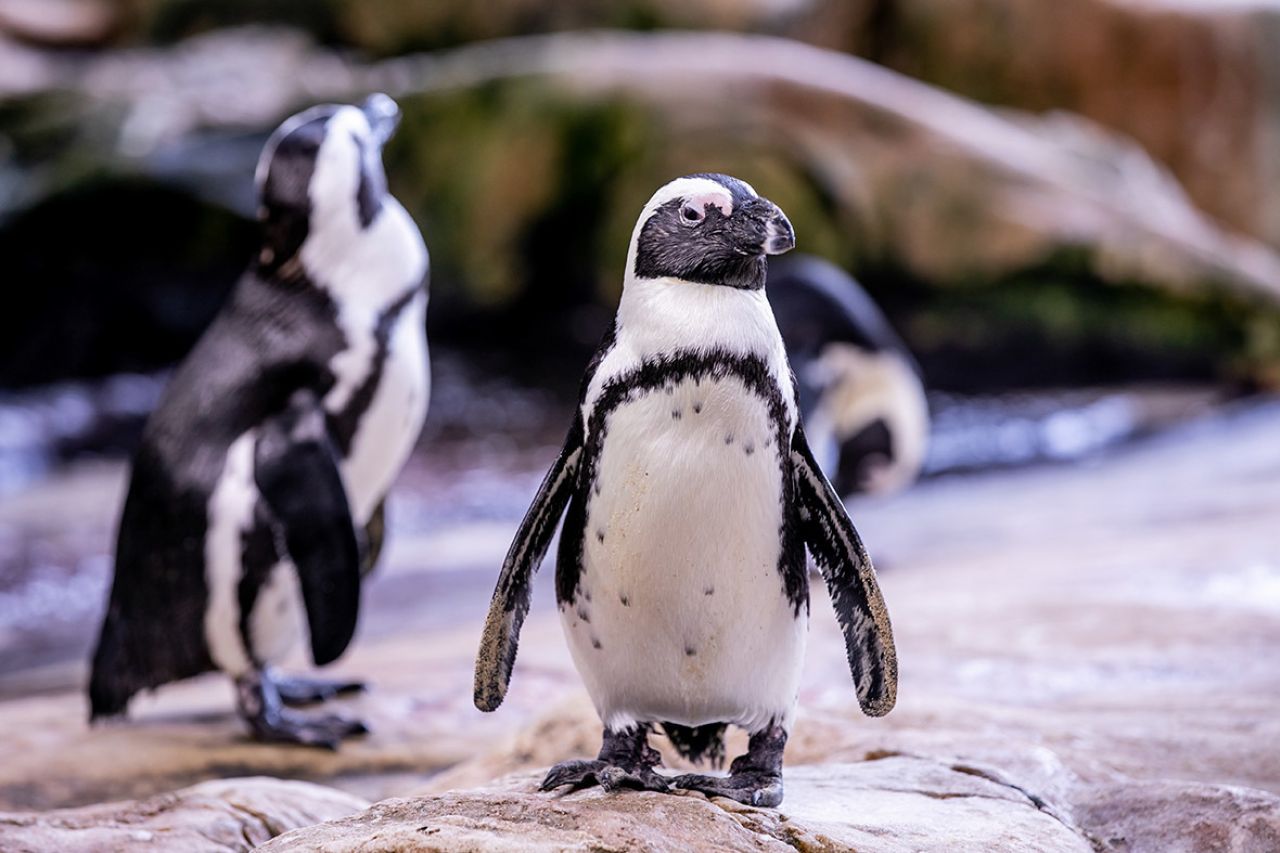
- The penguin colonies on Robben Island and at Stony Point and Boulder's beach are all formed from the descendants of "refugee" penguins that fled Dyer Island in the 1970s and 1980s when the anchovies were overfished in the area.
- There were more than 4 million African penguins in the 1800s. Today there are only about 10 000 breeding pairs.
- South Africa and Namibia are the only countries with African penguin colonies.
- The deepest dive and breath-hold for an African penguin is 130m for 275 seconds.
- Their preferred food is sardines, but because of overfishing, they are being forced to change diets.
- African penguins' nesting season is March to May in South Africa and November to December in Namibia.
- They dig nests in guano or sand and use the shade of bushes to protect their eggs.
- Parents take turns incubating the eggs over 40 days.
- When an African penguin has gotten its first waterproof feathers, it will leave its colony for about two years. They usually return home for their final moult into adulthood but may join another colony or start their own!
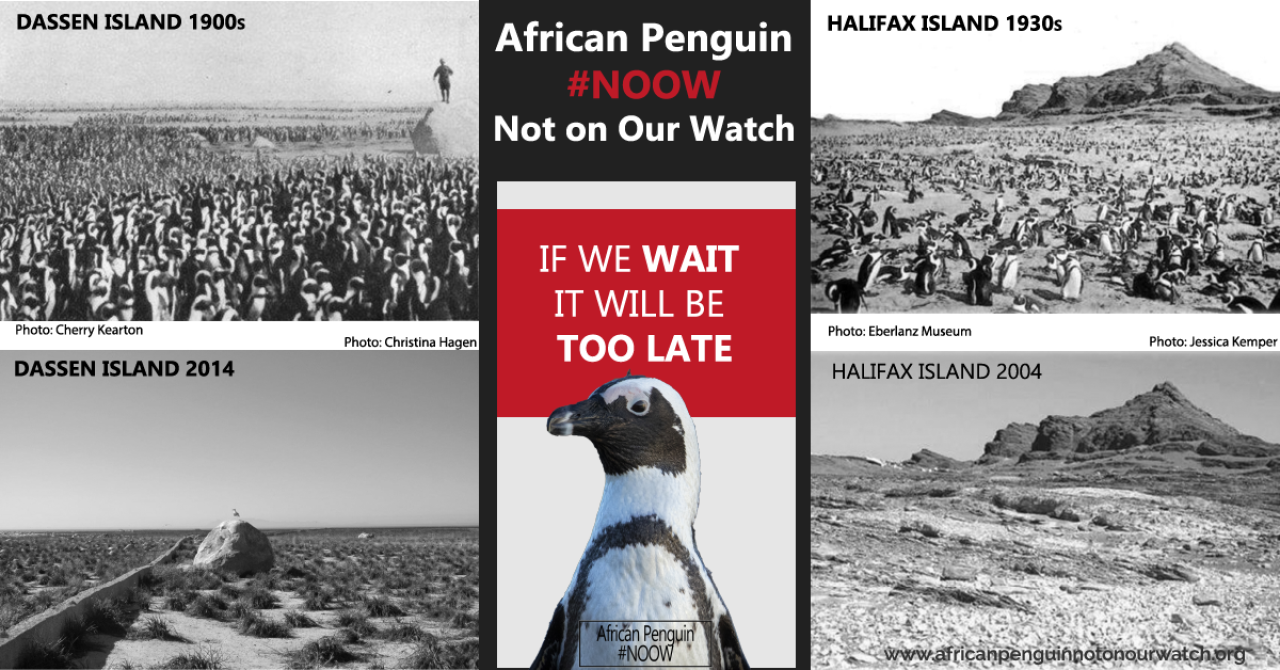
- Cape fur seals are the main predators of African penguins, but human activities have brought them into closer contact with land predators like caracals, domestic dogs and mongooses.
- African penguin eggs were once considered a delicacy in France, and this led to the decimation of several of the largest penguin colonies.
- The wreck of the MV Treasure, a Panamanian bulk carrier, in 2000, spilled oil between Robben Island and Dassen Island - oiling over 19 000 penguins in South Africa's two largest penguins colonies. The massive collaborative effort to save these birds and relocate almost 20 000 other penguins to safer areas set the standard for modern seabird rehabilitation.
- African penguins were the first penguins described by European explorers, with a crew member of Vasco Da Gama describing ones seen in Mossel Bay on 25 November 1497 as "there are birds as big as ducks, but they cannot fly and bray like donkeys."
- Penguins have flattened corneas, so light doesn't bend when it passes through them underwater and causes their vision to blur when diving (like yours do if you open your eyes underwater). Penguins have nictitating membranes - third eyelids that keep the saltwater out of their eyes when swimming.
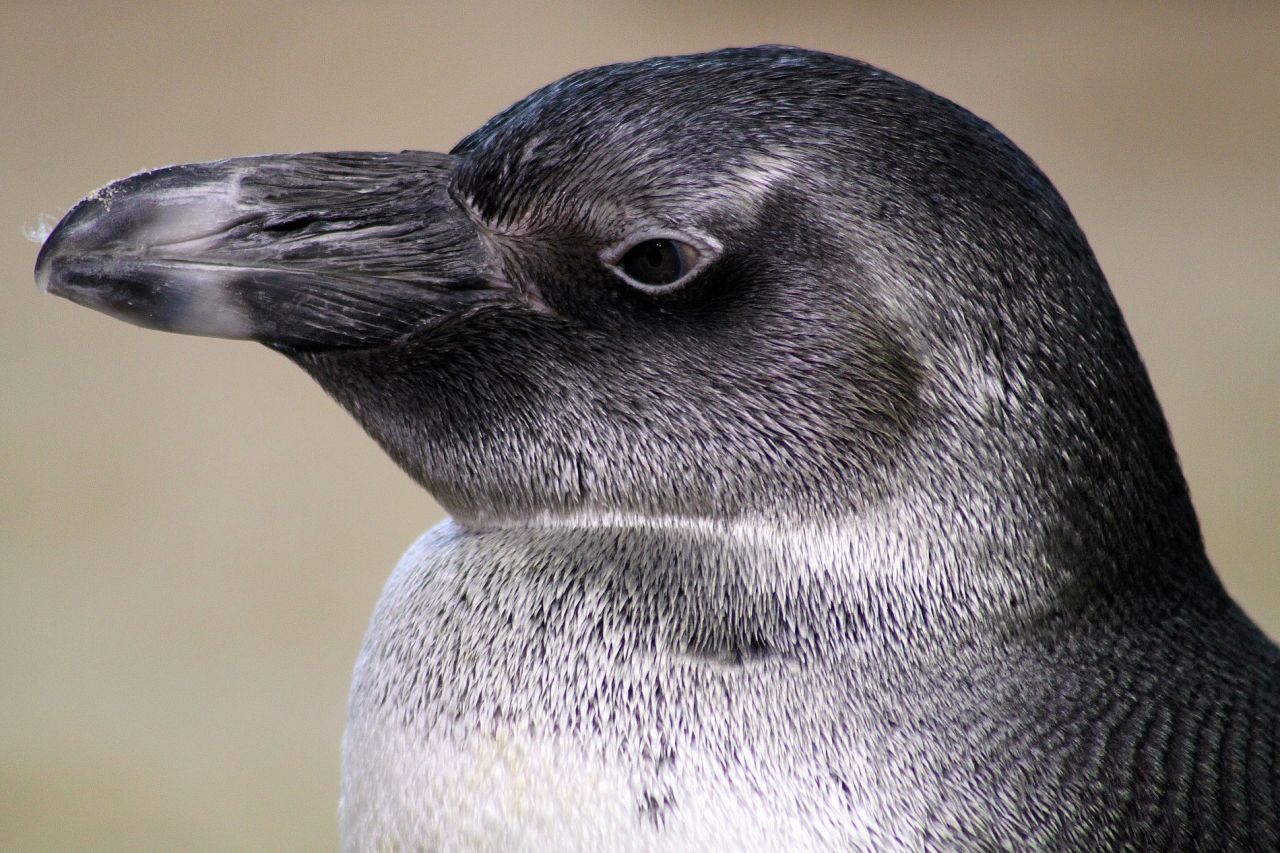
The plumage of a juvenile African penguin is significantly different to older penguins. Credit: Flow Communications
- African penguins are classified as "charismatic megafauna", which is the scientific way of confirming that they are adorable...
- Penguins can see ultraviolet light.
- Penguins never need to drink fresh water. They swallow seawater and sneeze the excess salt out of their nostrils!
- Penguins can only taste sourness and saltiness.
- Penguins don't fart.
- When a penguin moults, they cannot enter the water for about three weeks while they grow new feathers - they go hungry the entire time and survive off of their body fat.
- African penguins live 10 to 27 years in the wild.
- To swim faster, penguins "porpoise" by leaping out of the water as they swim.
- There are currently 28 wild African penguin colonies.
- Breeding penguins will swim 20 - 60km from their colony to forage, whereas single penguins might swim up to 100km away.
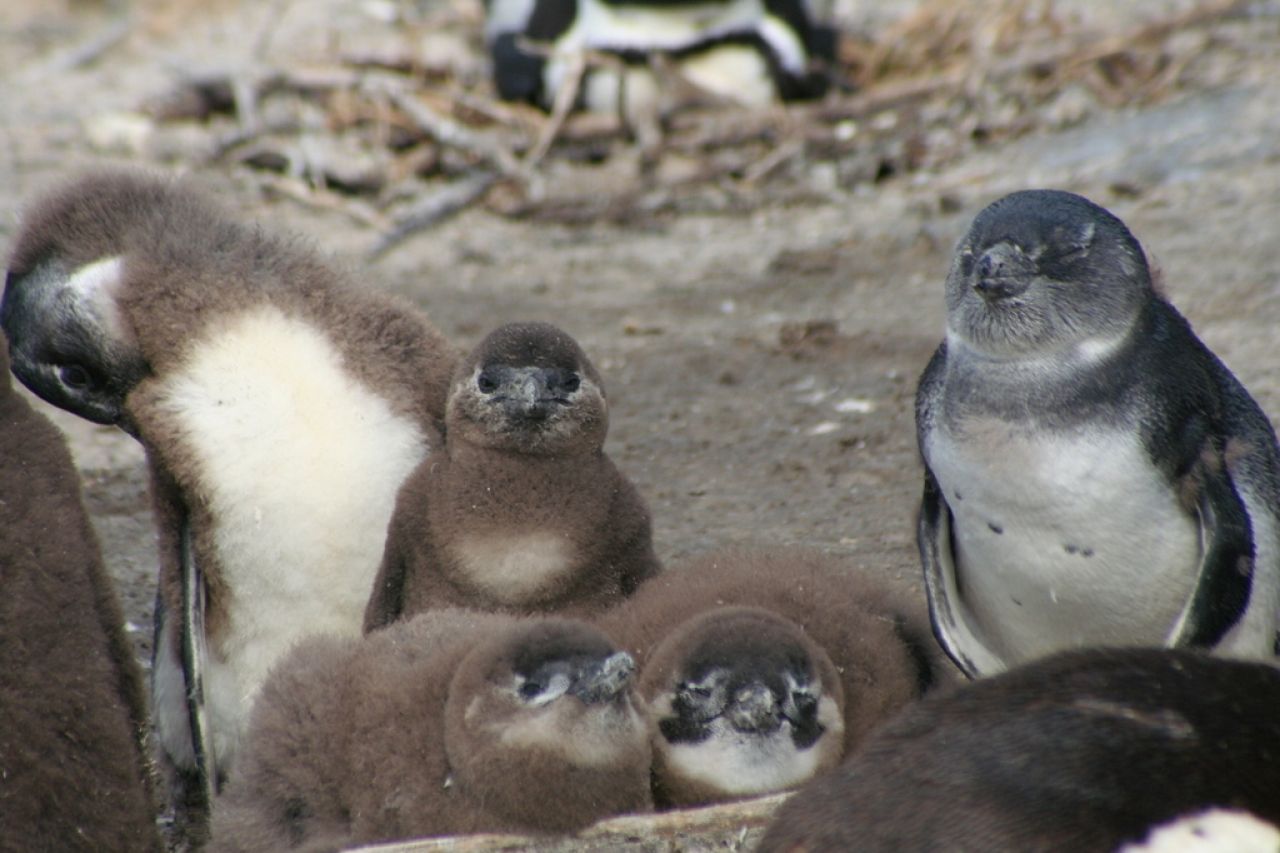
A group of juvenile penguins is called a creche. Credit: Craft0logy
- The IUCN Red List classifies African Penguins as endangered and rapidly declining, with a largely depleted population.
- African penguins can swim about 20km/h, whereas the top human athletes can only manage sustained swims of about 8km/h.
- Penguins that remain on land during the day will stand with their backs to the sun to prevent their fins and faces from becoming too warm.
- African penguins have a much narrower range of hearing than humans but are much more sensitive to specific frequencies than we are. This allows them to pick out the calls of their chicks and mates with ease in a noisy colony.
- African penguins are one of the smaller penguin species in the world, between the smaller Galapagos penguin and the larger Snare's penguin.
- African penguins swim faster as they get closer to the shore, as this is where they are most likely to encounter fur seals.
- About 19% of all African penguins alive today are a direct result of the rehabilitation work of SANCCOB.
- Birdlife South Africa, together with partners, is investigating the viability of establishing new penguin colonies on South Africa's Southern Coast, where it's thought that there is a higher food abundance. Measures being tested include artificial nests and "decoy penguins" to make migrating juveniles feel more at home.
- We don't know why, but African penguins love the scent of lavender - which is great because it keeps pests out of their nests (and our Senior Penguin Keeper says you're always welcome to drop off some lavender cuttings at the Aquarium - just not in a plastic bag).
Want to help? Here's how:
Related News
Sign up to our Newsletter
Receive monthly news, online courses and conservation programmes.
